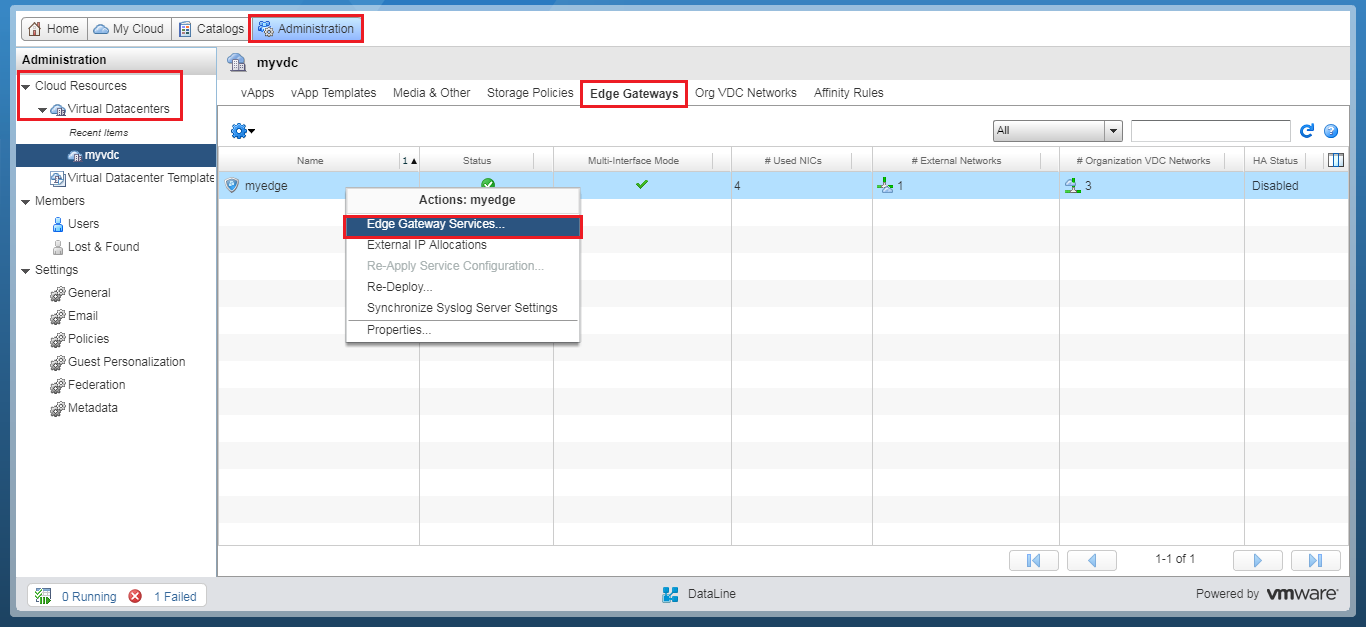VMware NSX for the smallest. Part 3. Configuring DHCP

Part one. Introductory
Part two. Configuring Firewall and NAT Rules
DHCP is a network protocol that allows your virtual machines to automatically obtain an IP address and other parameters necessary for working on a TCP / IP network.
')
NSX Edge has three DHCP option options:
- DHCP pool - creation of a pool of addresses that will be issued automatically by DHCP clients;
- DHCP binding - binding a specific IP address to a specific mac-address;
- DHCP Relay — use a third-party DHCP server that provides IP addresses to servers that are on other subnets (other than the DHCP server).
In order to enter the DHCP server settings menu, go to the Administration section and click on your virtual data center. In the horizontal menu that appears, select the Edge Gateways tab, right-click on the desired network and select the Edge Gateway Services option .

Go to the DHCP menu.

DHCP pool setup
To create a new DHCP pool, click +.

In the window that appears, specify the range of IP addresses that the DHCP server will issue to clients. This range should not overlap with the organization’s Static IP pool network.
Enter Default Gateway, DNS, Subnet Mask. Click Keep.

Save the changes.

Is done.

Configure DHCP Binding
To bind an IP address to a specific MAC address, go to the Bindings tab and click +.

In the window that appears, be sure to specify:
- MAC address of the network interface of the virtual machine, for which we want to assign IP;
- Host Name –– server name;
- The IP address that is assigned to the virtual machine.
Click Keep.

Save the changes.

Is done.

Configure DHCP Relay
To configure the issuance of IP addresses from a third-party DHCP server, go to the DHCP Relay tab.

Specify the address of a third-party DHCP server. You can do this with IP Addresses.

or IP Sets.


Add an interface where the DHCP Relay agent will run. To do this, click on the + in the DHCP Relay Agent section.

Choose from the list of vNICs where DHCP clients are located.
Important: The DHCP pool and DHCP binding should not overlap with the interface where the DHCP Relay agent will be running.

Save the changes.

Is done.

When all the settings are completed, we return to the main page, activate DHCP and apply the changes.

Is done.

Now go to the virtual machine settings. In the Hardware tab in the NICs network interface settings, select the IP Mode item DHCP.

Done, you can use. In the next article we will discuss the configuration of static and dynamic routing.
Source: https://habr.com/ru/post/441882/
All Articles